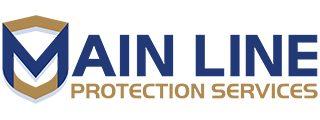
Main Line Protection Services, a trusted provider of comprehensive security solutions, offers an Investigation Division dedicated to providing professional and reliable investigative services. With a commitment to uncovering the truth and delivering accurate information, our investigative team is equipped with the skills and expertise to handle a wide range of investigation activities. In this article, we will explore the meaning of investigative services, discuss the purpose behind investigations, highlight common investigation activities, and shed light on the investigative procedure.
What is the meaning of investigative services?
Investigative services refer to the professional activities and processes involved in gathering, analyzing, and evaluating evidence and information to uncover facts, identify the truth, and provide accurate findings. These services aim to assist individuals, organizations, and legal entities in resolving disputes, uncovering fraud, conducting background checks, and obtaining essential information for informed decision-making.
What is the purpose of investigations?
Investigations serve various purposes, depending on the specific circumstances and objectives. Here are some common purposes behind conducting investigations:
- Discovering the truth: Investigations aim to uncover facts, evidence, and information related to a specific incident, dispute, or situation. By delving into the details and gathering relevant evidence, investigations help establish the truth and provide clarity.
- Resolving disputes: Investigations play a crucial role in resolving disputes, whether they are civil, criminal, or internal conflicts within an organization. By gathering facts and evidence objectively, investigators can contribute to the resolution of conflicts and support the pursuit of justice.
- Identifying fraud and misconduct: Investigative services are often employed to identify and expose fraudulent activities, misconduct, or unethical behavior. Investigators use various techniques and methodologies to detect irregularities, gather evidence, and present a comprehensive analysis of fraudulent practices.
- Ensuring compliance: Investigations are conducted to ensure compliance with regulations, policies, and legal requirements. By examining processes, transactions, and practices, investigators can identify any non-compliance issues and recommend appropriate measures to rectify them.
- Providing due diligence: Before engaging in business transactions, partnerships, or investments, investigations are conducted to assess risks, verify credentials, and obtain essential information about individuals or entities. Due diligence investigations help in making informed decisions and mitigating potential risks.
What are the investigation activities?
Investigation activities encompass a wide range of tasks and methodologies employed to gather information, analyze evidence, and reach logical conclusions. Here are some common investigation activities:
- Gathering evidence: Investigators collect various forms of evidence, including documents, photographs, videos, witness statements, and digital data. They use techniques such as interviews, surveillance, research, and forensic analysis to obtain relevant evidence.
- Interviewing witnesses: Investigators conduct interviews with individuals who possess information or have witnessed events related to the investigation. They use their interviewing skills to elicit accurate and relevant information, ensuring that all perspectives are considered.
- Conducting research: Investigators perform thorough research to gather background information, explore relevant sources, and uncover additional leads. This may involve examining public records, conducting online research, or accessing specialized databases.
- Surveillance: In cases where observation is necessary, investigators may conduct surveillance to gather information discreetly. Surveillance activities can provide valuable insights into the activities, behaviors, and interactions of individuals under investigation.
- Analyzing data: Investigators employ analytical techniques to evaluate the collected evidence, identify patterns, and draw logical conclusions. This may involve data analysis, forensic examination, financial analysis, or other specialized methodologies.
What is an investigative procedure?
An investigative procedure refers to the systematic and structured approach followed by investigators during an investigation. It outlines the steps and protocols to be followed to ensure a thorough and efficient investigation process. Investigative procedures may vary depending on the nature of the investigation, but typically involve the following:
- Planning and case assessment: Investigators plan the investigation, define objectives, identify potential risks and challenges, and assess available resources. This includes determining the scope of the investigation, establishing timelines, and allocating necessary personnel.
- Information gathering: Investigators gather relevant information, evidence, and data through interviews, research, surveillance, and other appropriate methods. They document their findings, ensuring accuracy and maintaining a clear chain of custody for evidence.
- Analysis and evaluation: Investigators analyze the collected evidence, assess its credibility and relevance, and evaluate its impact on the investigation. This involves careful examination, comparison, and interpretation of the evidence to draw logical conclusions.
- Reporting and documentation: Investigators prepare comprehensive reports documenting their findings, methodologies, and conclusions. These reports serve as a record of the investigation and are often used for legal or internal purposes. Clear and concise documentation ensures transparency and provides a basis for further actions if required.
- Presentation and communication: Investigators may present their findings and conclusions to clients, legal entities, or relevant stakeholders. Effective communication of the investigation results is essential to facilitate informed decision-making and appropriate actions based on the investigation’s outcome.
Main Line Protection Services maintains a strict adherence to professional standards and ethical guidelines throughout the investigative process. With our experienced team and meticulous investigative procedures, we aim to provide accurate, reliable, and timely results to our clients.
